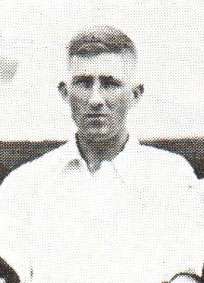Paul Whitelaw
Paul Erskine Whitelaw (born at Auckland on 10 February 1910, died at Auckland on 28 August 1988) was a New Zealand cricketer who played for Auckland and New Zealand.
 Paul Whitelaw in 1931 | ||||||||||||||||||||||||||||||||||||||||
| Personal information | ||||||||||||||||||||||||||||||||||||||||
|---|---|---|---|---|---|---|---|---|---|---|---|---|---|---|---|---|---|---|---|---|---|---|---|---|---|---|---|---|---|---|---|---|---|---|---|---|---|---|---|---|
| Full name | Paul Erskine Whitelaw | |||||||||||||||||||||||||||||||||||||||
| Born | 10 February 1910 Auckland, New Zealand | |||||||||||||||||||||||||||||||||||||||
| Died | 28 August 1988 (aged 78) Auckland, New Zealand | |||||||||||||||||||||||||||||||||||||||
| Batting | Right-hand bat | |||||||||||||||||||||||||||||||||||||||
| Bowling | - | |||||||||||||||||||||||||||||||||||||||
| International information | ||||||||||||||||||||||||||||||||||||||||
| National side |
| |||||||||||||||||||||||||||||||||||||||
| Test debut (cap 25) | 24 March 1933 v England | |||||||||||||||||||||||||||||||||||||||
| Last Test | 31 March 1933 v England | |||||||||||||||||||||||||||||||||||||||
| Career statistics | ||||||||||||||||||||||||||||||||||||||||
| ||||||||||||||||||||||||||||||||||||||||
Source: Cricinfo, 1 April 2017 | ||||||||||||||||||||||||||||||||||||||||
Domestic career
A right-handed opening batsman with a fine array of strokes, Whitelaw played first-class cricket for Auckland with some success from 1928-29 to 1946-47, averaging 37 runs per innings.
In 1934-35, playing for Auckland against Wellington, he scored 115, his first first-class century, in the first innings, and 155 in the second innings. In 1936-37, playing for Auckland against Otago at Dunedin, Whitelaw and Bill Carson set a world record that stood for almost 40 years by adding 445 for the third wicket. The partnership, which began with the score on 25 for 2 took only 268 minutes. Whitelaw's 195 in this match was his highest first-class score.[1][2]
International career
He made only two Test match appearances, both on the short tour of New Zealand by the 1932-33 MCC side that followed the Bodyline tour of Australia. Both matches were dominated by the batting of Wally Hammond, who scored 563 runs in two innings, being dismissed just once. Whitelaw made 64 runs from four innings, two of them not out. But though he represented New Zealand in matches against the MCC team led by Errol Holmes in 1935-36, he never played Test cricket again.
References
- Wisden 1989, p. 1179.
- Otago v Auckland 1936-37